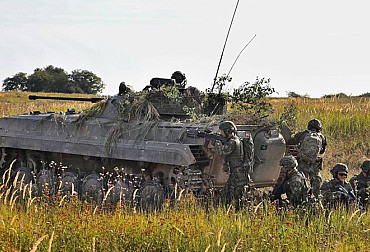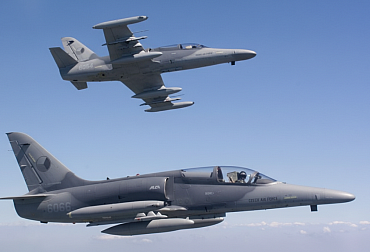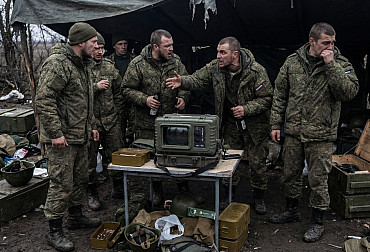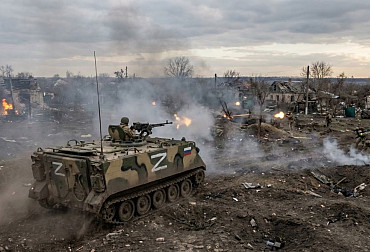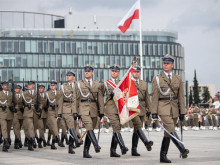Sixth generation fighter jets over Europe: What does FCAS mean for the Czech Republic?
In recent weeks, the debate about the future of Europe's most ambitious arms project, the Future Combat Air System (FCAS), has reignited. This initiative by France, Germany, and Spain aims to bring a comprehensive sixth-generation combat system to European skies by the middle of the 21st century, which will go beyond conventional fighter technology. FCAS will connect manned aircraft, drone swarms, sensors, and cyber capabilities into a single military ecosystem. Despite its promising technological potential, however, FCAS is teetering on the brink of collapse. Disputes between France and Germany over the division of labor and management of the project reveal deep divisions in European defense cooperation. In this situation, it is worth asking whether this project has any significance for a country such as the Czech Republic, which is not directly involved in it.
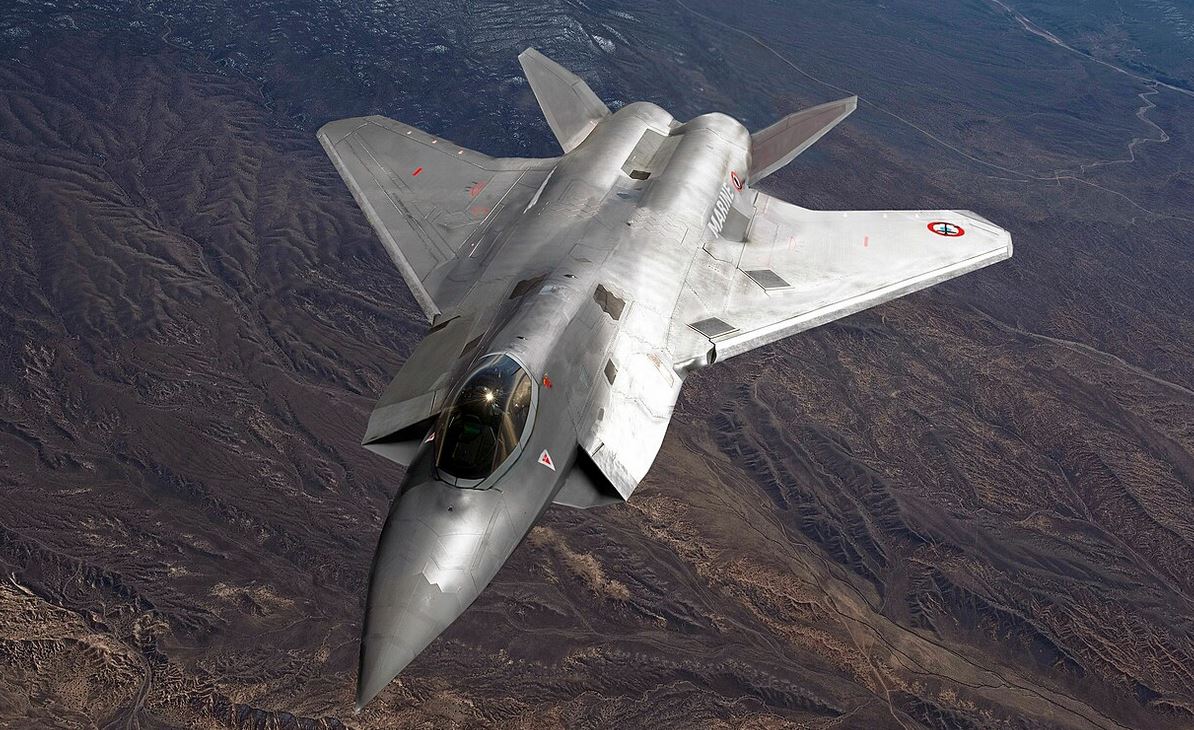
The idea of developing a new generation of European aircraft arose as a response to the structural dependence of European armed forces on American technology. Back in 2017, France and Germany signed an agreement to develop a joint system to replace the French Rafale and German Eurofighter aircraft. Spain later joined the initiative. The goal was not only to create a new aircraft (referred to as the New Generation Fighter – NGF), but a comprehensive system of systems that includes support drones, sensors, a command center, and new standards for connectivity in the combat space. The original schedule called for technology demonstrators in the second half of the 2020s and the start of series production after 2040. The program was conceived as a symbol of European technological sovereignty and unity, as well as a counterweight to the American F-35, which had already been ordered by several European countries (including Germany and the Czech Republic).
However, the ambitious program gradually ran into difficulties. The latest point of tension was France's demand that its share in the development of the manned NGF be 80%. According to available information, the French government has sided with Dassault Aviation, which is the national leader in the project and has historically always advocated national independence in the development of combat aircraft. Citing the capabilities it demonstrated in developing the Rafale aircraft without foreign partners, Dassault is demanding leadership of the aircraft's development, as well as a substantial portion of the construction and design rights. This position completely undermines the original principles of equality between partners and raises concerns about the future contribution of German and Spanish industry. At the same time, French pressure threatens the continuation of the entire consortium: the possibility that Dassault could abandon the entire project and develop its own replacement for the Rafale has even been reported in the media.
Germany responded cautiously and critically. During a meeting with NATO Secretary General Mark Rutte, Chancellor Friedrich Merz confirmed the strategic importance of FCAS and the need to complete negotiations within months, but at the same time clearly rejected unilateral changes in the division of labor. The German defense industry, represented by Airbus Defense and Space, considers equal status within the project to be non-negotiable. The Airbus trade union openly called Dassault an unsuitable partner and warned against an unbalanced solution that would jeopardize the German aviation industry in the future. There are proposals for alternative alliances, such as the British-Japanese-Italian GCAP (Global Combat Air Programme), or further investment in the modernization of the Eurofighter as a parallel solution.
In the Czech Republic, the FCAS project has never been the subject of a public government statement. Neither the Ministry of Defense nor the government has yet considered possible participation in the program, either as an observer or as an industrial subcontractor. However, this topic has sporadically appeared in online discussions. In 2017, the Palba.cz forum raised the hypothesis of the Czech Republic joining the program and a smooth transition from Gripen to FCAS. In reality, however, a different logic prevailed. In 2023, Petr Fiala's government approved the purchase of 24 F-35A Lightning II fighter jets, which will gradually replace the leased Gripens. This step effectively ended any consideration of immediate Czech participation in the European development of a sixth-generation aircraft.
Nevertheless, it would be a mistake to consider FCAS a project of no significance for the Czech Republic. Even without Prague's direct participation, the program has strategic implications that extend into several areas. The first of these is the industrial dimension. The Czech defense industry may become involved in the future as a subcontractor, as has been the case with other European defense projects. Companies such as OMNIPOL, LOM Praha, and Aero Vodochody can offer capacities in the areas of subsystem production, training, servicing, and support infrastructure. Participation in the programs of the European Defense Agency (EDA) and Permanent Structured Cooperation (PESCO) opens the door to FCAS-related technologies in the areas of autonomous drones, electronic warfare, and AI in combat systems.
Although FCAS is not a direct competitor to the F-35, these projects cannot be completely separated. Given the planned deployment of the F-35 in the Czech Air Force, it will be important to analyze the operation of American fighter jets in European airspace alongside FCAS. If Europe decides in the future to build a separate network environment independent of American standards, the issue of interoperability will come to the fore. In such a case, the Czech Republic could find itself technically and doctrinally "straddling" two worlds (F-35 and FCAS), which would affect planning, training, maintenance, and joint operations. Participation in the European defense dialogue on FCAS, even as an associate, will help Prague prepare for such a situation in all respects.
Special attention will also need to be paid to the technological trends set by FCAS. The project is fundamentally based on the concept of system combat, where the piloted aircraft will not be the central platform, but part of a larger ecosystem of autonomous and semi-autonomous systems. Drones, often referred to as "loyal wingmen" or "collaborative combat aircraft," will extend the capabilities of the main aircraft, take over risky missions, and form an adaptable network in the electromagnetic spectrum and cyberspace. This opens up opportunities for Czech research and technology institutions in the development of software for autonomous control, algorithms for data sharing, and cyber security. Many of these areas are already the subject of grant calls under the European Defense Fund (EDF), to which Czech companies and institutions can respond.
Last but not least, FCAS is a test of Europe's ability to truly develop defense systems collectively. Experience shows that without a willingness to compromise and trust between partners, even the best technological intentions fail. In this regard, the Czech experience with multilateralism, pragmatism in defense acquisitions, and the ability to align Euro-Atlantic and European interests may represent a desirable approach for the future. FCAS is therefore not just a question of aircraft or sensors; it is a litmus test for European defense integration. If Europe cannot coordinate three partners, what chance does it have of integrating the defense of 27 EU member states? Although the Czech Republic is not among the countries discussing the design of FCAS, the decisions it makes will inevitably affect it. It is therefore in its interest to remain informed, ready to engage, and open to possible cooperation that goes beyond the combat system itself.











